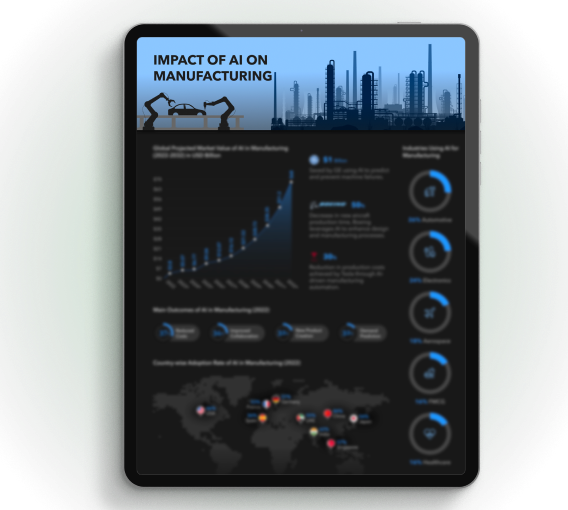- AI
- 6 min read
- October 2022
Role of Artificial Intelligence in Manufacturing Industry
As AI technology has advanced, it has become cost-effective and widely available in various businesses. There is no denying that artificial intelligence in manufacturing has completely changed its processes and functioning.
This change has significantly impacted how goods are produced, increasing efficiency, reducing human error, and raising overall plant output.
Today, in this article, you will understand how deeply rooted AI has become in the manufacturing industry. This article will also allow manufacturers to finally take the plunge toward an architecture that is driven by data-backed decision-making algorithms.
What does artificial intelligence in manufacturing brings to the table for the industry?
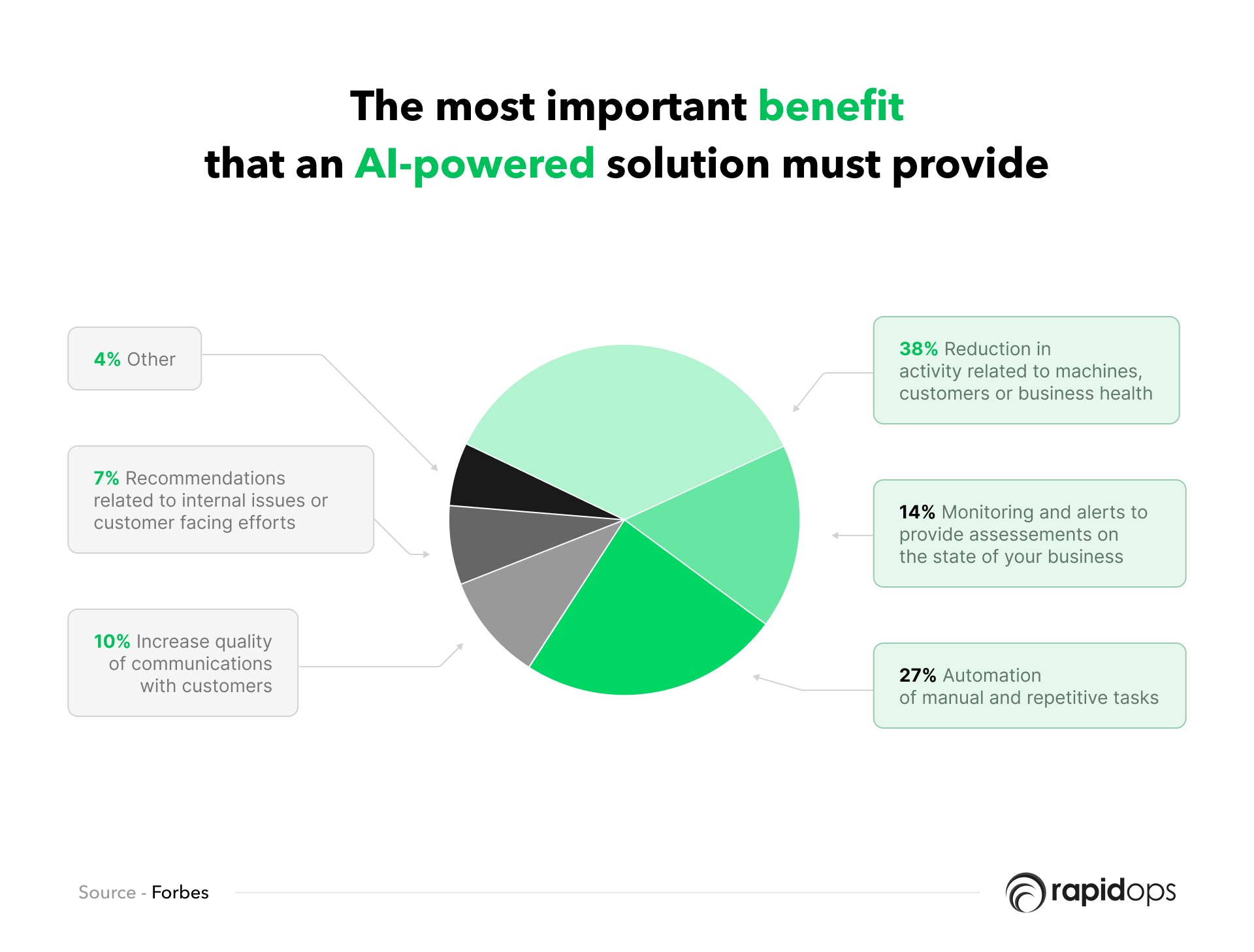
Source - Forbes
Manufacturers want to save and make money, reduce risks, and improve production efficiency. This is crucial to ensure their survival and the viability of their future.
Manufacturers can overcome insurmountable challenges and issues with AI\ML and advanced analytics. They can overcome challenges such as undetected bottlenecks and unprofitable production lines.
Manufacturers with AI-powered analytical prowess use historical datasets for better forecasting. Advanced analytics can be used for forecasting and help gain product output cost-effectively.
Let's look at how AI assists the manufacturing sector in efficiently accomplishing its goals.
1. Plant monitoring and prescriptive maintenance
“Prescriptive Maintenance has greatly reduced downtime because the anticipated issue has an accuracy of 90%, allowing technicians to fix the problem before the damage”. - ThyssenKrupp
Since the beginning of industrialization, the manufacturing industry has been constantly addressing the issue of machine downtime. Over the years, it has impacted the industry in several ways.
Nowadays, manufacturing industries are focusing on predicting the maintenance and replacement of machine parts using AI/ML and data analytics.
It has helped in preventing production interruptions and enhances plant resources by continuously monitoring the status of the factories and assembly lines. This is achieved through AI-powered tools as sensors are integrated into production equipment, and real-time notifications are produced for the necessary repair.
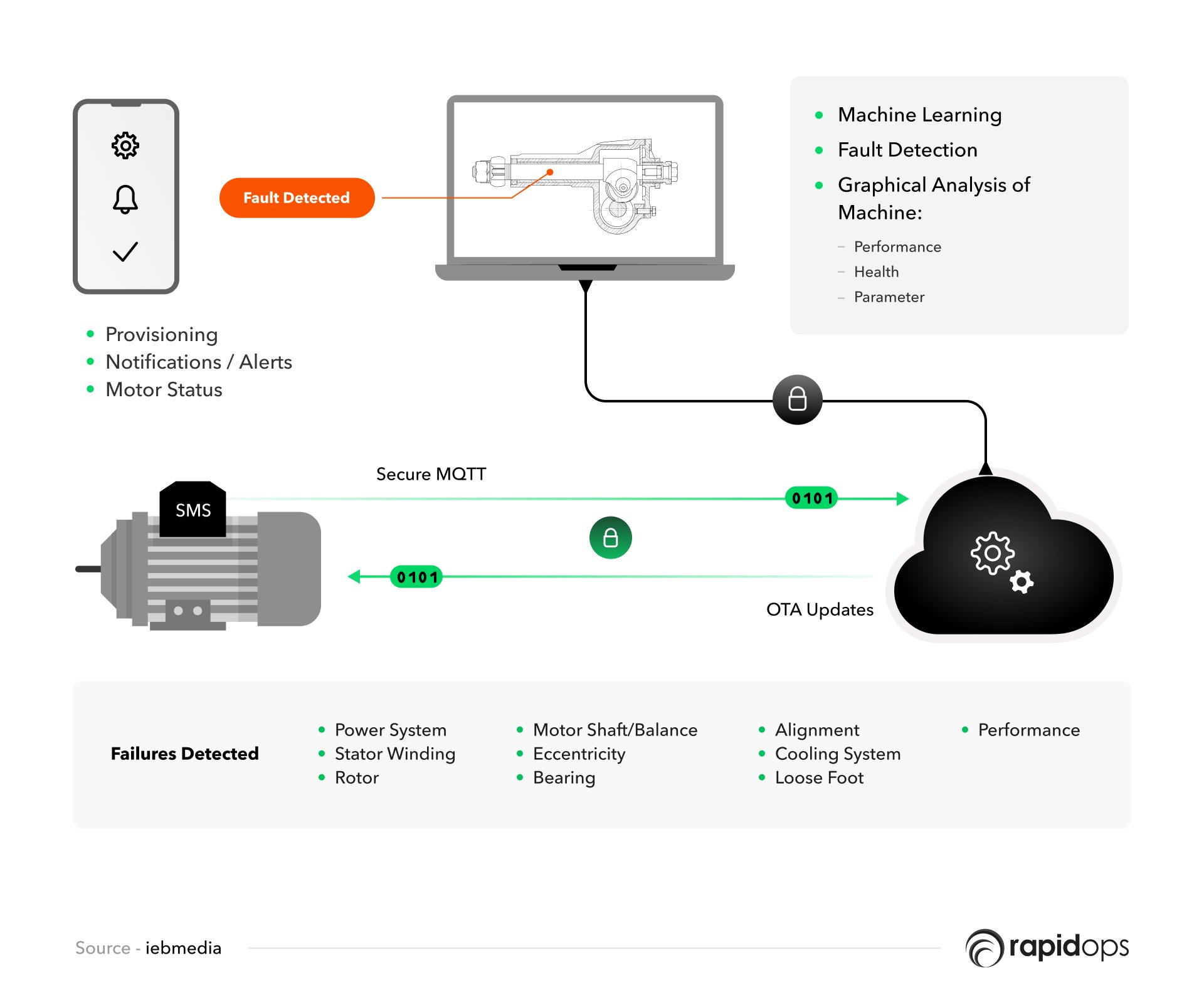
Source - iebmedia
Predictive intelligence, the next stage or level of prescriptive maintenance, enables manufacturers to enhance efficiency so that equipment rarely malfunctions.
2. Inventory optimization
“30% of the consumers feel that stock-outs hurt their shopping experience”- Repsly
Most supply chains find it challenging to cope with the present difficulties of globalization, erratic demand, and increasingly complicated, differentiated, and personalized products. Maintaining inventory control while maintaining customer service standards is quite tricky.
Overstocking of goods isn’t the solution that will help you get control over your inventory; indeed, it will lead to the inability to track crucial things that have long been a troublesome area in inventory management.
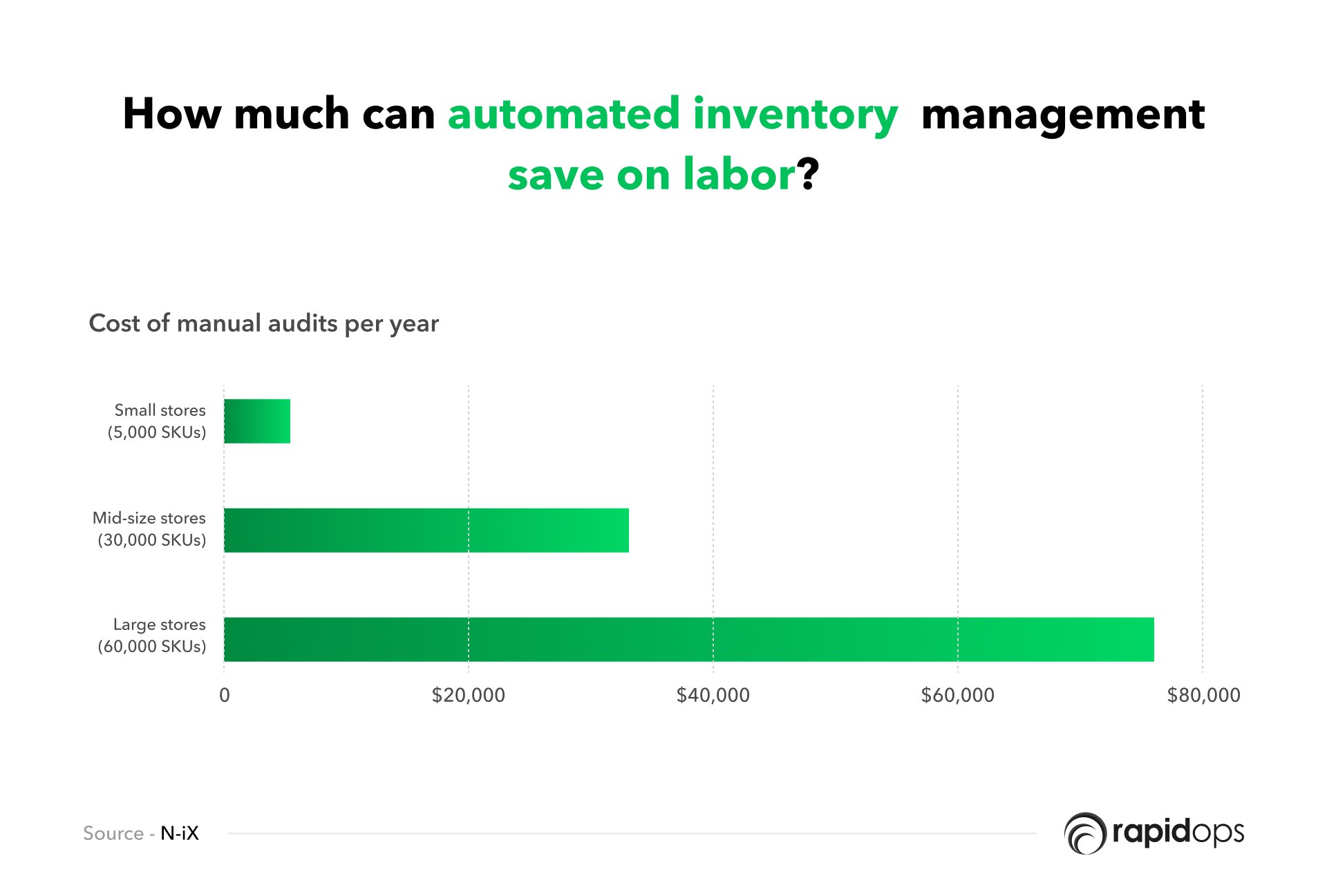
Source – N-iX
The primary goal is to deliver the right product to customers at the right time with minimum inventory. An intelligent inventory optimization system does exactly that. It automatically modifies inventory levels to precisely meet shifting customer demands, freeing up capital, raising service standards, lowering expenses, and increasing inventory turnover.
You cannot afford to miss this - Must-Know Trends for Supply Chain & Manufacturing
3. Resilient supply chain
“Implementing AI-enabled supply chain management has helped early adopters to improve logistics costs by 15 percent, inventory levels by 35 percent, and service levels by 65 percent” – Mckinsey
The foundation of the manufacturing sector is the supply chain. Managing today's supply chain, which has multiple components, is extremely difficult.
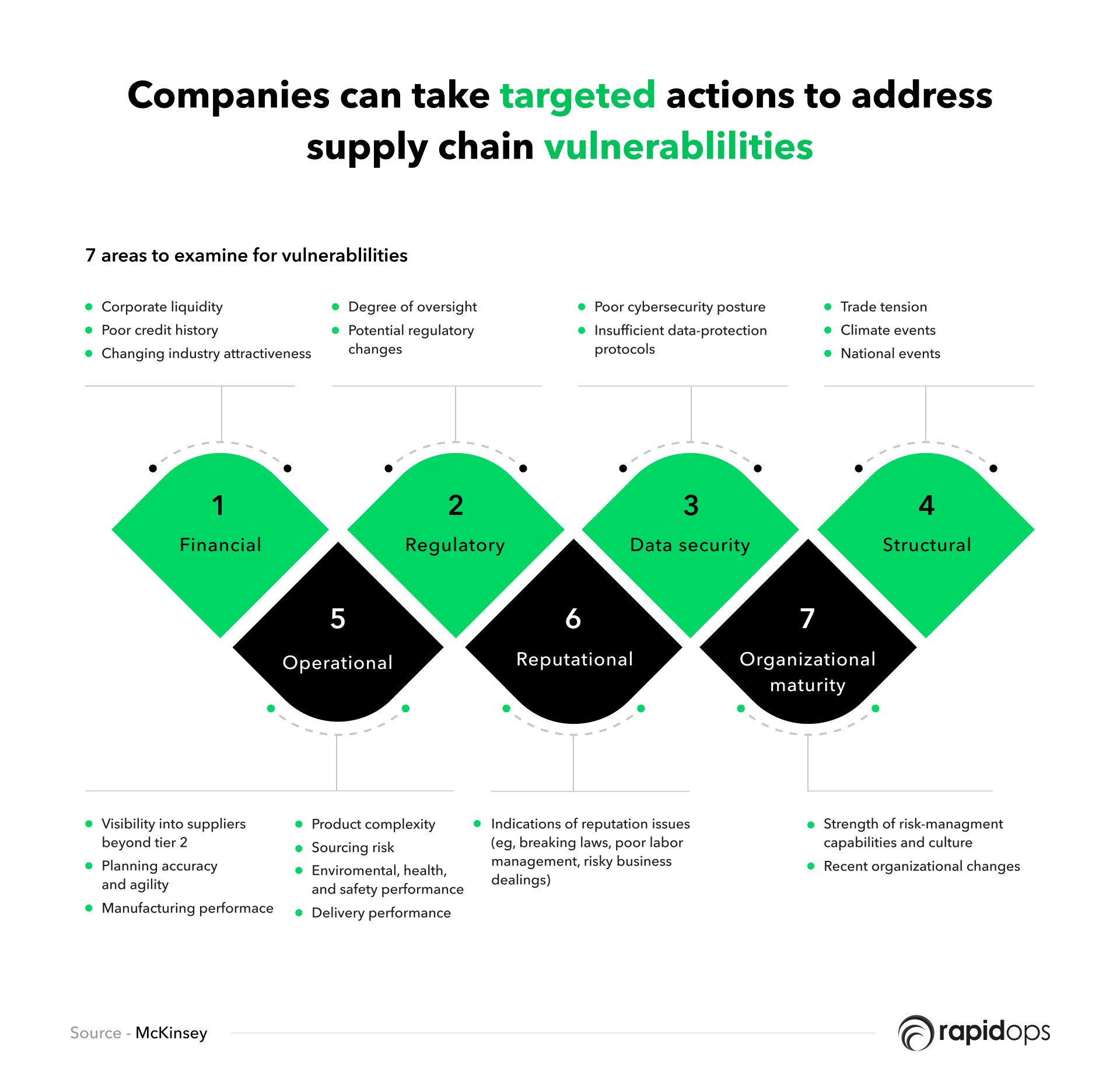
Source - McKinsey
Manufacturers can evaluate multiple scenarios with AI-enabled tools to enhance last-mile deliveries. In addition to using historical data, AI can estimate the best delivery routes, monitor driver performance in real-time, and analyze weather and traffic reports.
It also aids in lowering freight costs and enhancing supplier delivery in a collaborative supply chain architecture.
4. IoT exceptional handling
“Companies expect IoT and other digital technologies to improve efficiency by 12 percent.” - PWC
The industrial intersection of AI and IoT in manufacturing, coupled with sensors and connected devices generating large amounts of operational data, is known as IIoT. Compelling IoT device data is available that you can make use of to monitor your assets, vehicles, and finished goods.
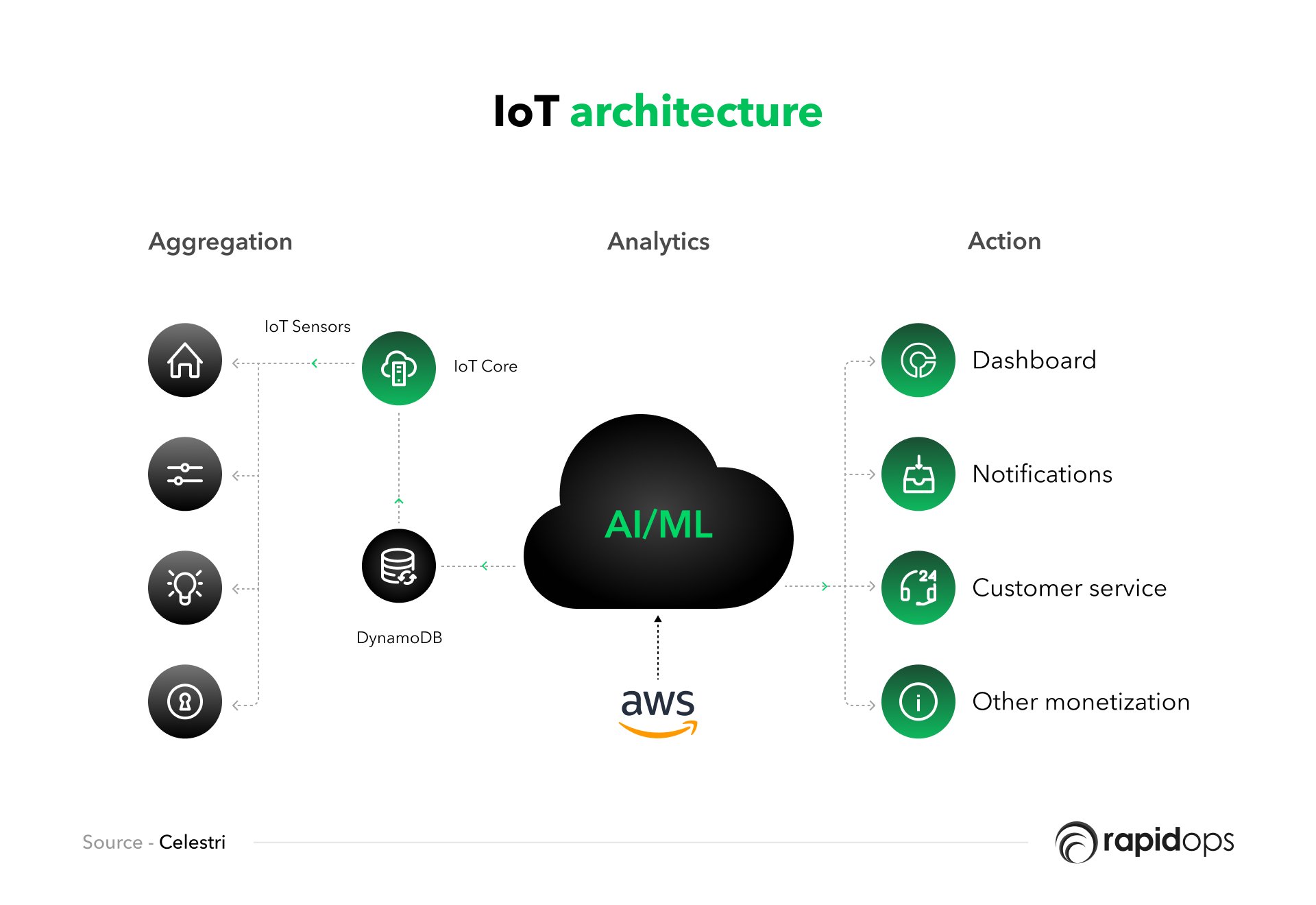
Source - Celestri
It also helps you detect anomalies and problems through IIoT analytics in manufacturing, offering AI-driven operational insights that improve uptime and efficiency.
More unambiguously, you must focus on these four objectives to ensure the proper functioning of the industry:
- Sensor platform that integrates information from people, processes, and devices
- Management of sensor data for inferring data relevance and business context
- Process compliance to ensure data quality and exception handling
- Providing actionable information using real-time alerts and integration with record-keeping systems
Artificial intelligence in manufacturing use cases
1. BMW
The BMW Group employs AI to identify quality standard deviations in real time.
At BMW's Dingolfing plant, an AI program analyses vehicles with a real-time image of the model designation of freshly manufactured automobiles.

Source – Forbes
All generally accepted combinations, together with model designations and other identification plates like "xDrive" for four-wheel-drive vehicles, are kept in the picture database.
The final inspection team is notified if the live image and order data don't match, for instance, if a designation is missing. This is how BMW utilizes artificial intelligence to innovate across its production facilities, shocasing it as a prime example of AI-powered quality control using machine vision in production environments. .
2. Danone Group
AI/ML technology is currently being used by the French multinational food giant Danone Group to increase the accuracy of its demand. This AI/ML technology enhances planning & coordination across marketing, sales, account management, supply chain, and finance by producing precise forecasts.
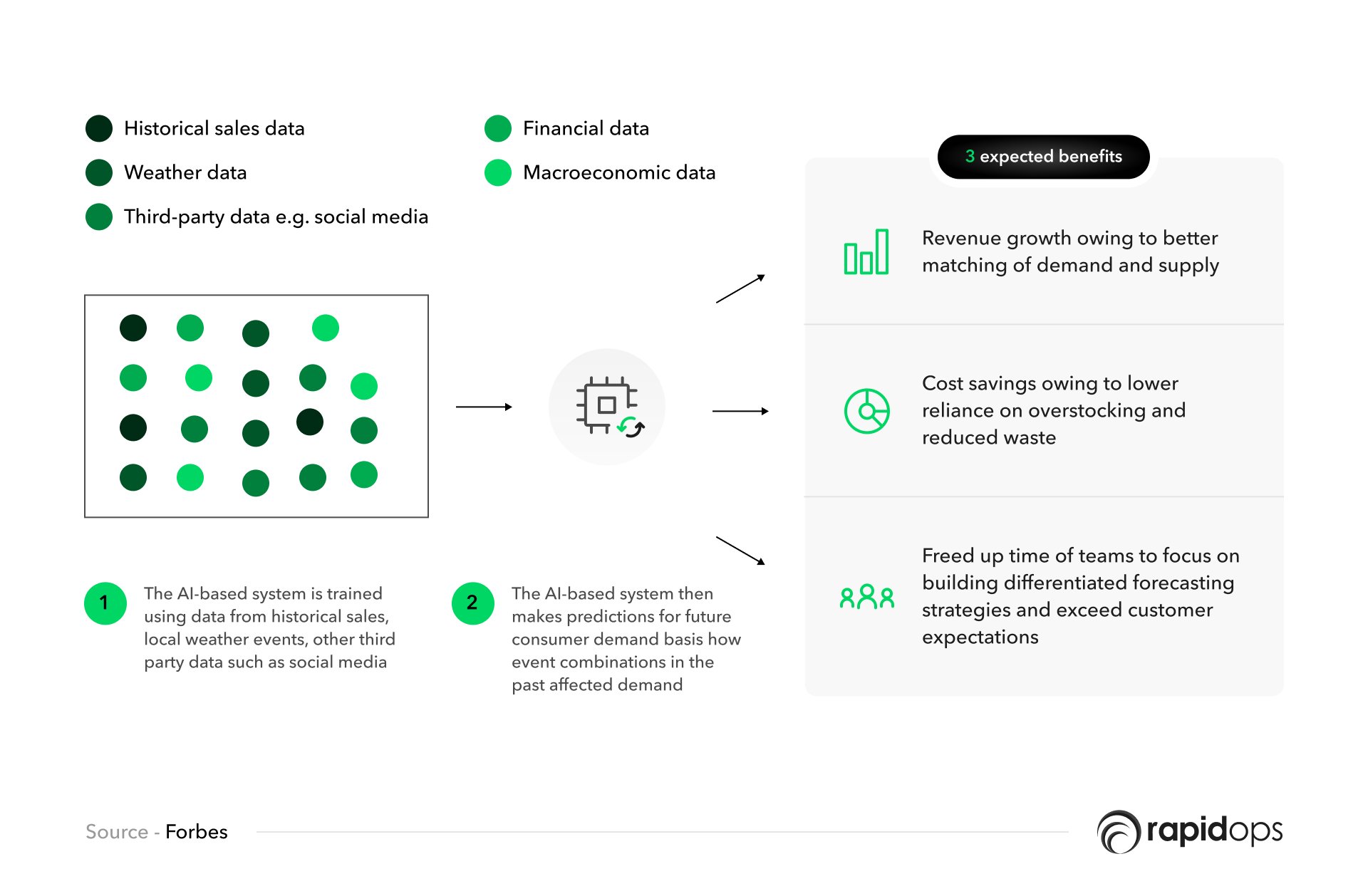
According to Forbes, implementing this technology has helped them to "reduce forecast error by 20%, reduced sales opportunities by 30%, reduced product obsolescence by 30%, and reduced demand planners' burden by 50%."
3. Thales Electron Devices S.A.
Thales SA, one of the leading suppliers of electronic systems, uses machine learning for various businesses to forecast preventative maintenance for high-speed trains.
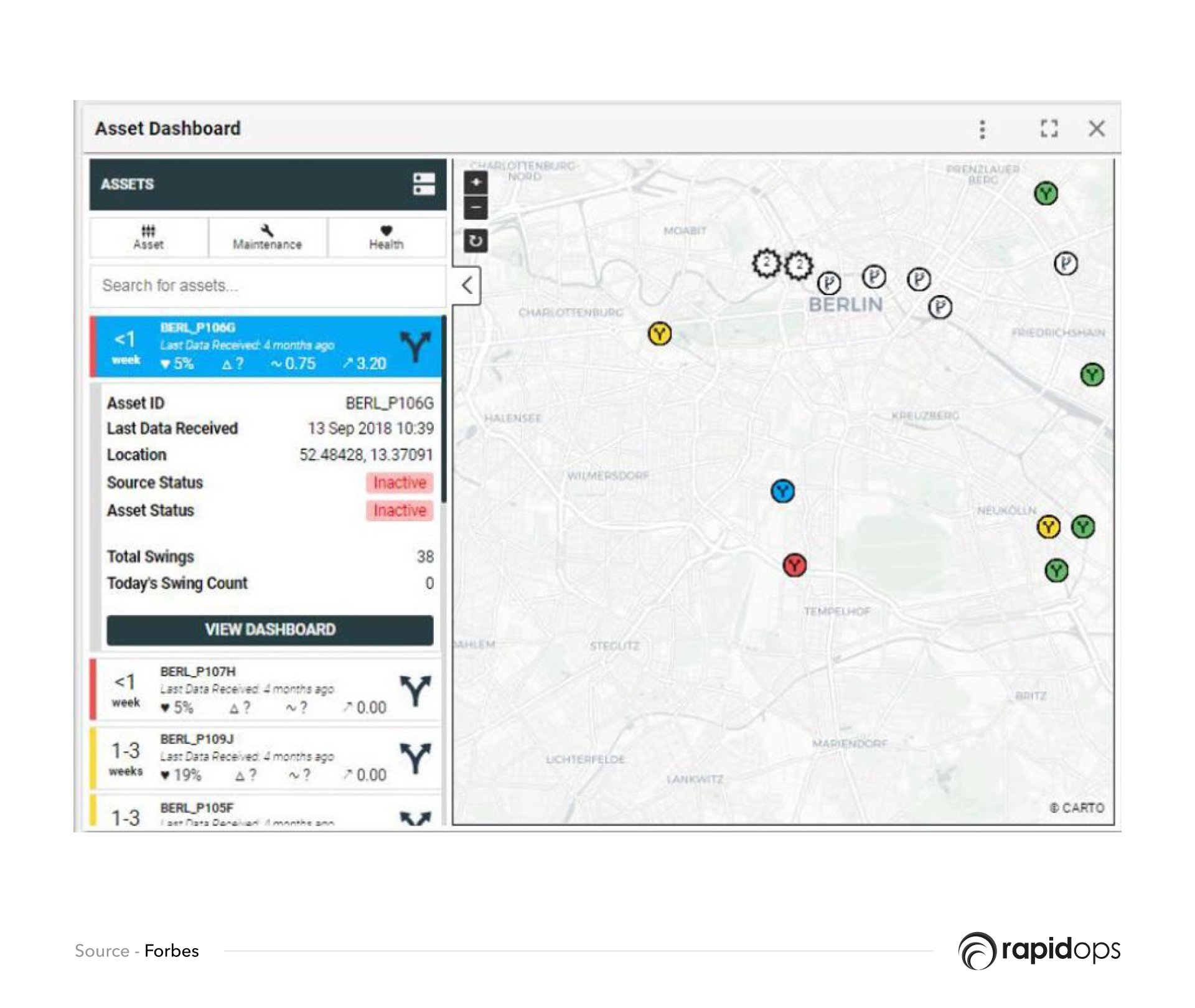
Source – Forbes
The company gathers historical and present-day information on thousands of sensors, train components, and subsystems in transcontinental European rail.
They have created an AI program to detect potential issues and determine when particular parts need to be changed, achieving a high level of reliability in the process. They achieved their aim of creating a system that runs on zero unplanned downtime.
4. AUDI
In the consumer goods sector, manufacturers can adhere to strict regulatory standards by performing real-time image analysis on their products
The two most significant factors that gave rise to real-time in-line quality inspection include:
- Decreasing the cost of high-resolution cameras
- Expansion of AI-based image recognition technology
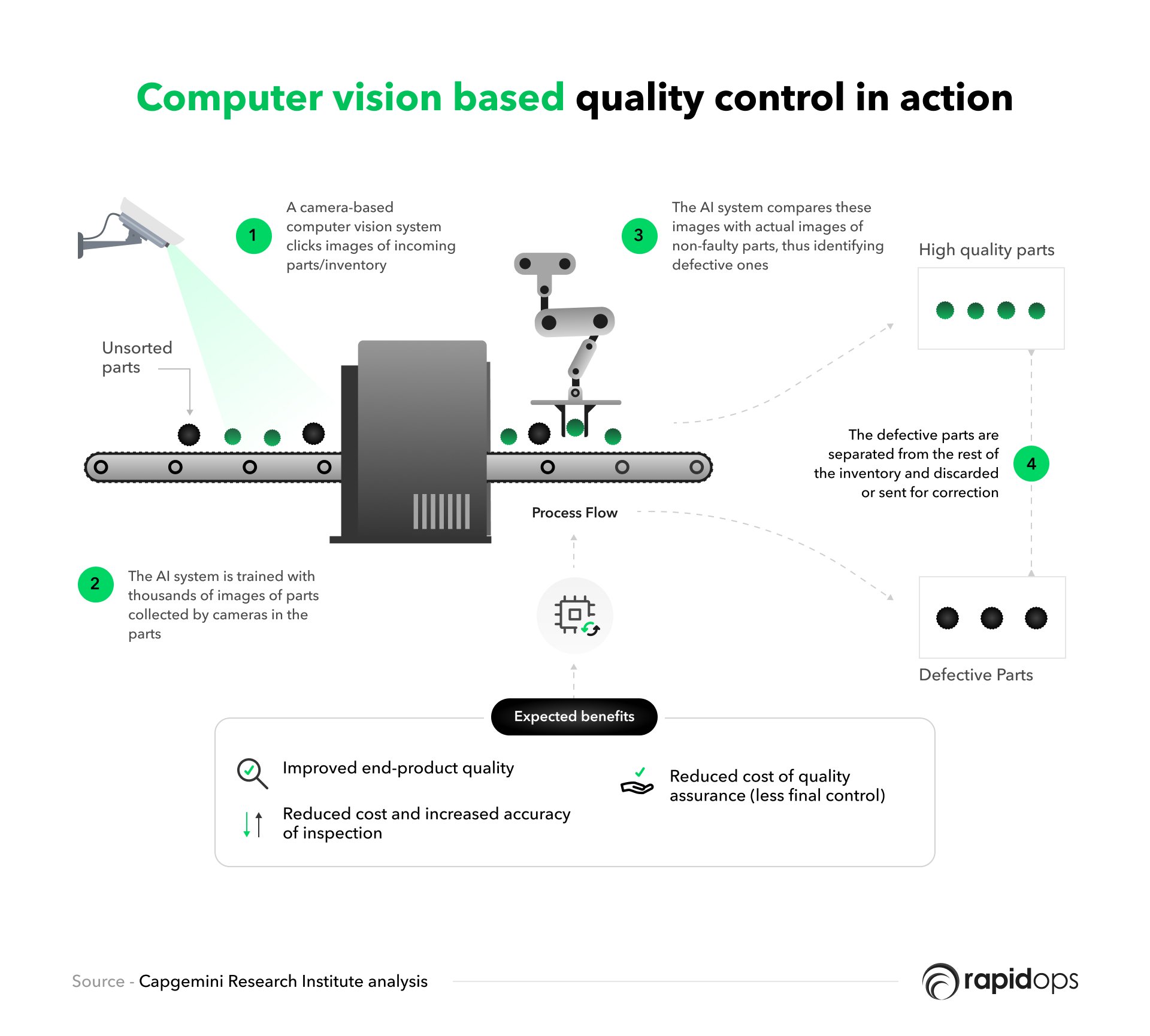
The adoption of real-time in-line inspection is increasing due to these two factors. With the installation of a deep learning-based image identification system at its Ingolstadt press facility, Audi has been a pioneer in implementing these technologies.
Implement artificial intelligence in manufacturing to create a well-connected process
As digital enablers, we feel that artificial intelligence will overtake other essential layers and components of the manufacturing industry and supremely enhance its operational productivity.
AI's greatest gift to the manufacturing workforce is its ability to give them back their time. AI helps manage repetitive tasks. This allows managers, technicians, and frontline workers to focus on more strategic activities.
Besides, the key to realizing this potential lies in knowing how to take advantage of AI and make it work in the manufacturer's favor.
We hope we have proved the importance of artificial intelligence in the manufacturing industry in this article. However, many manufacturing owners are yet to realize the importance of technology investments particularly in AI implementation in factories and the broader digital transformation in manufacturing.
Manufacturers can easily catch up with the early adopter of this lucrative technology and enjoy better profitability and an efficient production process with AI. They require an expert like Rapidops who can create a well-laid, end-to-end AI approach.

